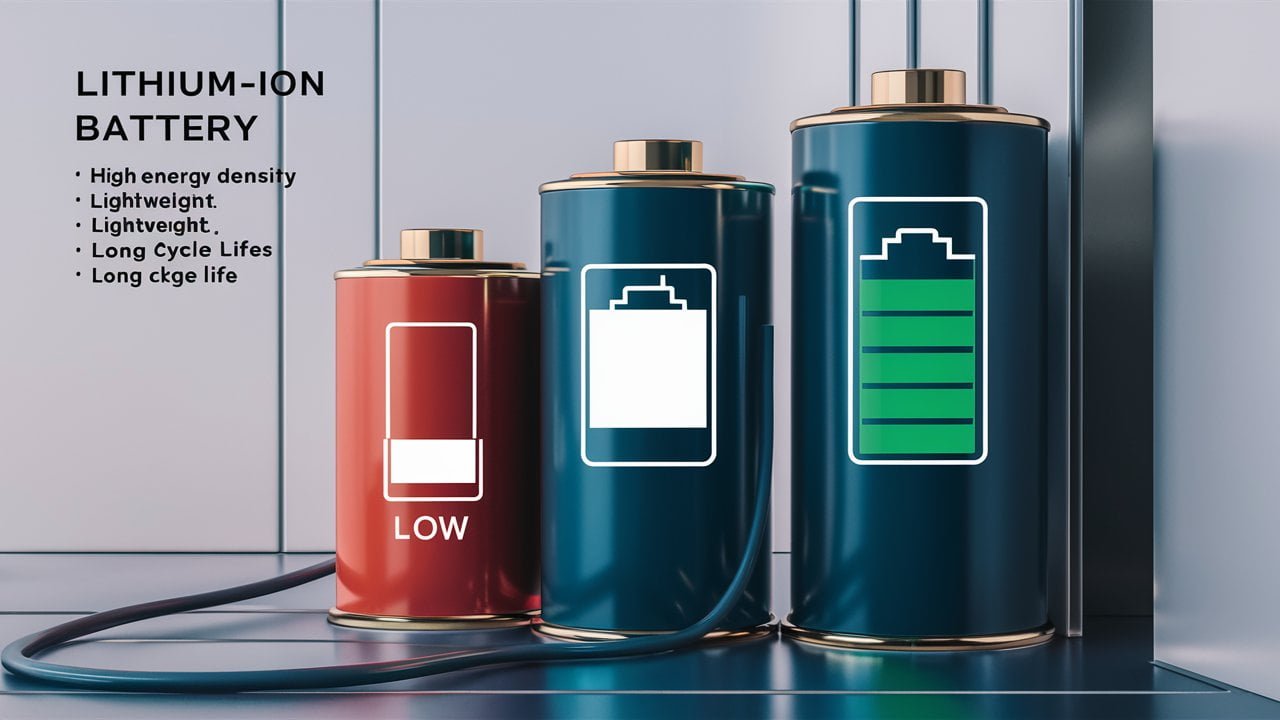Introduction and Overview
Welcome to Solar Horizons, a blog dedicated to exploring the future of energy and solar innovations. In this article, we will delve into the remarkable advantages of Lithium-ion batteries for solar energy. As the demand for sustainable energy solutions continues to rise, the integration of Lithium-ion batteries with solar systems has garnered significant attention. Let’s uncover the reasons behind their efficiency, durability, environmental impact, cost-effectiveness, and seamless integration with solar technologies.
Advantages of Lithium-ion Batteries
Lithium-ion batteries have revolutionized the energy storage landscape, offering numerous advantages that make them an ideal choice for solar energy applications. Let’s explore these advantages in detail.
- Efficient Energy Storage
- Longevity and Durability
- Environmental Impact
- Cost-Effectiveness
- Integration with Solar Systems
1. Efficient Energy Storage
Efficient energy storage is crucial for the successful implementation of solar systems. Lithium-ion batteries are widely recognized for their outstanding efficiency in energy storage. Their exceptional energy density enables them to store a significant amount of energy in a compact and lightweight design, making them highly suitable for diverse applications, including residential and commercial solar installations.
Below are detailed points highlighting the significance of efficient energy storage with Lithium-ion batteries:
- High Energy Density: Lithium-ion batteries are renowned for their high energy density, allowing them to store a substantial amount of energy in a limited space without adding excessive weight. This characteristic is particularly advantageous for solar systems, as it enables the efficient use of available space and contributes to the portability of energy storage solutions.
- Rapid Charging Capabilities: Another key feature of Lithium-ion batteries is their ability to charge rapidly, enhancing the overall efficiency of energy storage systems. This quick charging capability ensures that solar energy can be effectively captured and stored for subsequent use, thereby optimizing the utilization of renewable energy sources.
- Long Cycle Life: Lithium-ion batteries offer an impressive cycle life, allowing them to endure numerous charge-discharge cycles without significant degradation in performance. This durability is essential for sustained energy storage, ensuring that the batteries can reliably store energy over an extended period, thereby supporting prolonged energy sustainability.
- Temperature Resilience: The resilience of Lithium-ion batteries towards varying temperatures further contributes to efficient energy storage. This characteristic enables the batteries to maintain their performance and reliability in diverse environmental conditions, making them well-suited for solar energy storage applications in different geographic regions.
2. Longevity and Durability
Lithium-ion batteries are renowned for their exceptional longevity and durability. They have a high cycle life, meaning they can endure a large number of charge-discharge cycles without significant capacity loss. This extended lifespan makes them a sustainable and cost-effective choice for long-term solar energy storage solutions.
3. Environmental Impact
The environmental impact of energy storage solutions is a critical consideration in the transition to cleaner energy sources. Lithium-ion batteries, compared to traditional lead-acid batteries, have a lower environmental footprint. Their higher energy efficiency and the absence of toxic materials make them a greener choice for solar power systems.
4. Cost-Effectiveness
Cost-effectiveness is a significant advantage of utilizing Lithium-ion batteries in solar energy setups. While the initial investment may be higher than traditional lead-acid batteries, the long-term savings due to reduced maintenance, higher efficiency, and longer lifespan make them a financially prudent choice for energy storage in the context of solar systems.
- Reduced Maintenance Costs: Lithium-ion batteries require minimal maintenance, leading to lower long-term maintenance expenses compared to lead-acid batteries.
- Higher Efficiency: Lithium-ion batteries have higher energy conversion and charge-discharge efficiency than lead-acid batteries, resulting in greater overall efficiency in energy storage systems.
- Longer Lifespan: With proper care and usage, lithium-ion batteries have a significantly longer lifespan than lead-acid batteries, contributing to cost savings over the long term.
5. Integration with Solar Systems
Lithium-ion batteries seamlessly integrate with solar systems, offering scalability and flexibility. Their compatibility with advanced energy management systems and solar inverters enhances the overall efficiency and performance of the solar setup, providing a reliable and sustainable energy storage solution for residential and commercial applications.
Conclusion
In conclusion, the advantages of Lithium-ion batteries for solar energy are significant, ranging from efficient energy storage and extended longevity to environmental sustainability and cost-effectiveness. As the solar energy industry continues to evolve, the integration of Lithium-ion batteries represents a pivotal advancement towards a cleaner, more sustainable energy future.


7 thoughts on “The Advantages of Lithium-ion Batteries for Solar Energy”